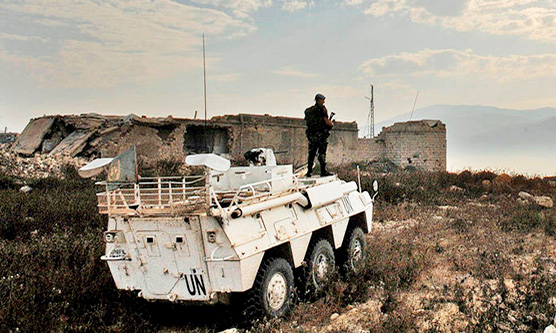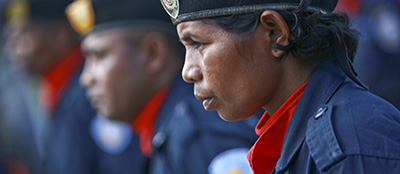‘Violent extremism’ is rarely defined: neither the United Nations nor the European Union has an official definition. USAID defines it as “advocating, engaging in, preparing, or otherwise supporting ideologically motivated or justified violence to further social, economic or political objectives”. However, this apparently simple and obvious statement conceals a great deal of controversy and uncertainty….» more
Conflict
Supporting reconciliation in post-conflict situations
The key literature on reconciliation approaches is not very recent. However, there is a reasonable body of more recent evidence, particularly from Africa, of on-ground experience of implementing diverse reconciliation mechanisms. Given that reconciliation must be an indigenous process, one which donors can support but not lead/impose (see below), the literature says little ...» more
Building social cohesion in post-conflict situations
The approaches covered in this report include community-driven development, job creation, social protection and education. Whilst in theory there are strong links between these and social cohesion, there is very little rigorous empirical evidence to verify these links. More specifically, the literature highlights that: Community-driven development (CDD) programmes promote ...» more
Religion and conflict
The role of religion in international relations and its relationship with conflict and with peacebuilding is increasingly acknowledged but remains disputed. Secular resistance to incorporating religion in public affairs has given way to numerous academic publications, discussion forums and public initiatives. Governments and international organisations are increasingly willing to examine religion and incorporate it, to…» more
Private sector engagement in fragile and conflict-affected settings
The private sector and private sector development (PSD) are considered to have a crucial role to play in contributing to economic recovery and addressing a number of drivers of fragility. Key findings of the review include: Fragile and conflict-affected settings pose challenges for engaging with the private sector. Significant internal and external imbalances are ...» more
The effects of Russian intervention in the Syria crisis
The linked Russian political-military initiative in Syria – with a bombing campaign from 30 September, support of Iranian-Hezbollah-Syrian military ground offensives, and convening of international conferences to try and secure the Assad regime – has changed the dynamics of the 56-month Syrian conflict. The effects of the intervention are significant, and are both ...» more
Conflict analysis of Muslim Mindanao
The Autonomous Region of Muslim Mindanao (ARMM) in the Philippines was founded in 1989. It consists of five provinces – Maguindanao, Lanao del Sur, Basilan, Sulu and Tawi-Tawi. Conflict between Moro groups seeking an independent state in Mindanao, and the Government of the Philippines (GPH) has been ongoing for four decades. After numerous attempts to resolve the conflicts, a ...» more
Links between education and peace
Education is a significant contributor to peace, and appears in two of the 24 indicators in the Positive Peace Index produced by the Institute for Economics and Peace. Education can lead to peace and be a part of ‘building back better’ by supporting the transformation of the security situation, political institutions, economic regeneration and social development. However, ...» more
Curriculum development in fragile states to encourage peace and reduction of conflict
Research on education and conflict shows that education systems are not politically neutral but are an important part of the political economy that can exacerbate or mitigate conflict (Novelli et al., 2014; Bush and Saltareilli, 2000). The curriculum can be used as a vehicle to promote dominant ideologies. There are numerous instances where school curricula have been used to ...» more
Responding to mass atrocities and human rights abuses
Mass atrocities are generally understood as genocide, war crimes and crimes against humanity, but many other human rights abuses are committed in conflict-affected contexts. There are a range of responses to these abuses, particularly by national and international actors, constituting international criminal justice and transitional justice. Development actors are increasingly directly involved in managing conflict or…» more
Peacekeeping
The aim of peacekeeping is to preserve peace, normally after a peace agreement has been achieved. It has evolved from a primarily military activity, observing cease-fires and separation of forces after inter-state conflict, to multidimensional missions taking on a range of civilian tasks. Peacekeeping is conducted by both the United Nations and by regional organisations,…» more
Youth transitions into adulthood in protracted crises
Protracted crises can have a significant impact on youth transitions into adulthood, both by delaying and accelerating them. Waithood is a term commonly used to describe the state in which youths find themselves when their transitions to adulthood are delayed. There is a significant body of literature on youth transitions into adulthood in developing countries, with heavy ...» more
Video of seminar on Mass atrocities
A video of Chandra Sriram‘s GSDRC seminar is now available below. Professor Sriram explored three critical issues in developing responses to mass atrocities introduced in her Professional Development Reading Pack on the same subject. Chandra Sriram is Professor of International Law and International Relations at the University of East London. This seminar was held on 8…» more
Economic development in fragile and conflict-affected states
This Topic Guide draws on lessons from programmes and case studies to explore which types of economic development interventions can be effective in FCAS and which factors have contributed to successes and failures. ...» more
Extremist radicalisation towards non-state political violence in Jordan
Within available evidence, there are a number of knowledge gaps on issues, social structures (such as gender), and geographic areas. To reflect this state of knowledge and to be precise about the sources of specific findings, this report presents references in the form of an annotated bibliography. Key findings and themes include: There has been little non-state ...» more
Conflict dynamics and potential for peacebuilding in Iraq
This report is an update of the information available in the October 2014 GSDRC Contemporary conflict analysis of Iraq. Since the beginning of 2014, the extreme jihadist group ISIL, who are also active in Syria, has gained control of territory in the mainly Sunni and contested areas of Iraq, although government forces, the Kurdish Peshmerga, and the Shia dominated Hashd ...» more
Fragility, violence and criminality in the Gulf of Guinea
The Gulf of Guinea is rich in oil and gas, and a major international trade route. While oil wealth in the context of weak governance and under-development is creating tensions leading to criminality and violence, high geostrategic stakes provide the incentives for national, regional and international actors to seek solutions. This rapid literature review analyses the causes, ...» more
Links between the rule of law and conflict and peace in Afghanistan
A plurality of legal and judicial institutions exist in contemporary Afghanistan, but none meet minimal definitions of the rule of law – this is a matter of consensus. In particular, formal and informal laws and mechanisms do not enforce common rules equally over both elites and the less powerful, and men/boys and women/girls. The State only has a very limited presence, ...» more
Indicators for conflict, stability, security, justice and peacebuilding
There are a range of indicators that have been used to measure progress in these themes, and increasing recognition of the merits of measuring achievements and progress toward goals. Global targets and indicators can play an important role in fostering collaboration, aiding prioritisation, and informing and directing flows of resources to particular contexts or problems. The ...» more
Conflict analysis of Kenya
Kenya is a large multi-ethnic country, with over 40 different ethnic groups and many overlapping conflicts. It has high levels of sexual and gender-based violence and of intercommunal violence; low levels of persistent violence; cycles of election-related violence; and increasing numbers of terrorist attacks. The incidence, gravity and intensity of violence have all increased ...» more


